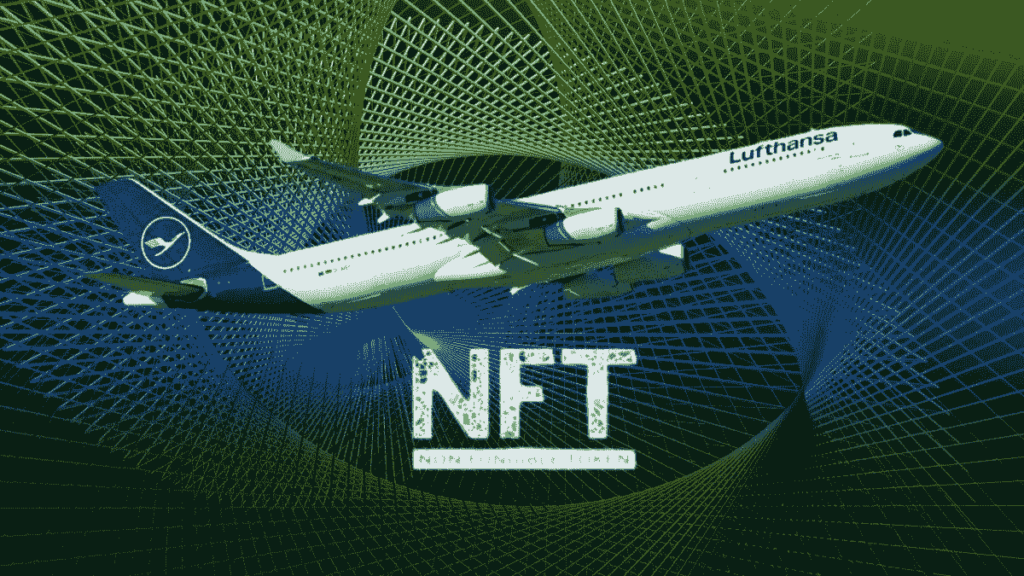Lufthansa, the second-largest airline in Europe, unveiled a non-fungible token (NFT) based loyalty program on the Polygon (MATIC) network that rewards participating passengers with digital collectibles that can unlock added benefits.
With the ongoing digital transformation around the world, global conglomerates have been increasingly jumping on the NFT bandwagon for various purposes such as memberships to programs, tickets to events, access to special events and even rewards programs.
Similar to core blockchain technology, NFTs have several business applications that are specific in their use and can help achieve a better position in the ever-evolving digital world. Over the recent past, scores of prominent organizations have dived into the NFT waters, launching their own collections, including Coca-Cola, Adidas, Nike, Samsung, LG, Starbucks and Amazon among many others.
Lufthansa Catches the NFT Fever
In the latest development, Deutsche Lufthansa AG, commonly shortened to Lufthansa, has announced the public launch of its NFT-based loyalty program, allowing passengers to turn their trips into digital collectibles that can unlock rewards, such as miles and business lounge vouchers.
🛫Lufthansa's @Uptrip_app loyalty program is building #onPolygon to turn flights into rewards
👉🏽Collect NFT trading cards for every flight and claim rewardsLearn more about the new Miles & More and @LHInnovationHub experience: https://t.co/MjQihK8xUx pic.twitter.com/JfUEoUJxNR
— Polygon (Labs) (@0xPolygonLabs) August 31, 2023
According to the official announcement, the airline major rolled out the “Uptrip mobile application,” a project by Lufthansa Innovation Hub, the airline group’s digital innovation unit, and Miles & More, the airline’s frequent flyer program. It seems all of the group’s airlines, which include Lufthansa, Austrian Airlines and Swiss International Air Lines are participating in the new initiative.
The Uptrip app, which is built on Polygon (MATIC), will enable passengers to scan their boarding passes and exchange them for NFT trading cards. Once passengers complete specific NFT collections, they will be eligible for rewards, such as flight upgrades, airport lounge access, frequent flyer status or award miles.
In order to use the service, users must connect their crypto wallets to mint and transfer their Uptrip NFTs, within the mobile application. As per Lufthansa, the NFT cards will be themed based on particular destinations, aircraft used in the airlines’ respective fleets, and even specific holidays.

Many Airlines Tap NFTs to Boost Digital Presence
This is not the first time aircraft carriers are tapping NFTs to boost their digital presence. In March 2023, Argentinian low-cost airline “Flybondi” integrated Web3 into its ticketing process by issuing e-tickets as NFTs.
Recently, United Arab Emirates’ flagship carrier, Etihad Airways, announced the expansion of its loyalty and rewards programs for its customers and NFT holders.
Prepare for takeoff✈️
We're thrilled to see @flybondioficial tokenize their inventory with @travelx__ to create the world's first secondary market for airline tickets!@algorand is built for large-scale applications & real-world solutions.
Learn more👇https://t.co/BZwXj0O3Yp
— Algorand Foundation (@AlgoFoundation) March 30, 2023
Etihad teased the release of a new 300-edition expansion to its Polygon-based EY-ZERO1 NFT collection, offering NFT holders the ability to “stake” their digital assets in exchange for air miles.
MINT DETAILS (MUST READ)📢
**The official mint timings are as follows:**
Holder’s Mint + Etihad Guest Store: 1st August, 10am UTC (2 hours)
Guaranteed Mint: 1st August, 12pm UTC (1 hour)
FCFS Whitelist: 1st August, 1pm UTC (3 hours)
Public Sale Opens: 1st August, 4pm UTC pic.twitter.com/bDHoPttrcF— Etihad NFT (@EtihadNFT) July 30, 2023
Furthermore, earlier this year, Japan’s largest airline group holding company, All Nippon Airways (ANA), launched an NFT marketplace featuring aviation photography, digital collectibles and more on the Ethereum (ETH) blockchain.
Is DeFi and Web3 under Threat from SEC?
Global firms continue to tap Web3 and blockchain technology despite the United States Securities and Exchange Commission’s (SEC) scathing attacks on the industry. The American regulator’s focus on the crypto industry expanded this week to include NFTs.
In its first NFT-enforcement action, the SEC targeted Impact Theory, a media and entertainment company, alleging, it had engaged in an unregistered offering of securities through its sale of NFTs.
In the thick of increased SEC enforcement and a murky regulatory environment in the United States, it seems the regulator may now also bring decentralized financial protocols and stablecoins into regulatory compliance. According to analysts led by Mark Palmer,
“The SEC could target the stablecoins that serve as the lifeblood of decentralized finance if it wants to lessen the likelihood that unregulated DeFi protocols would be viable substitutes for regulated lenders and exchanges.”



